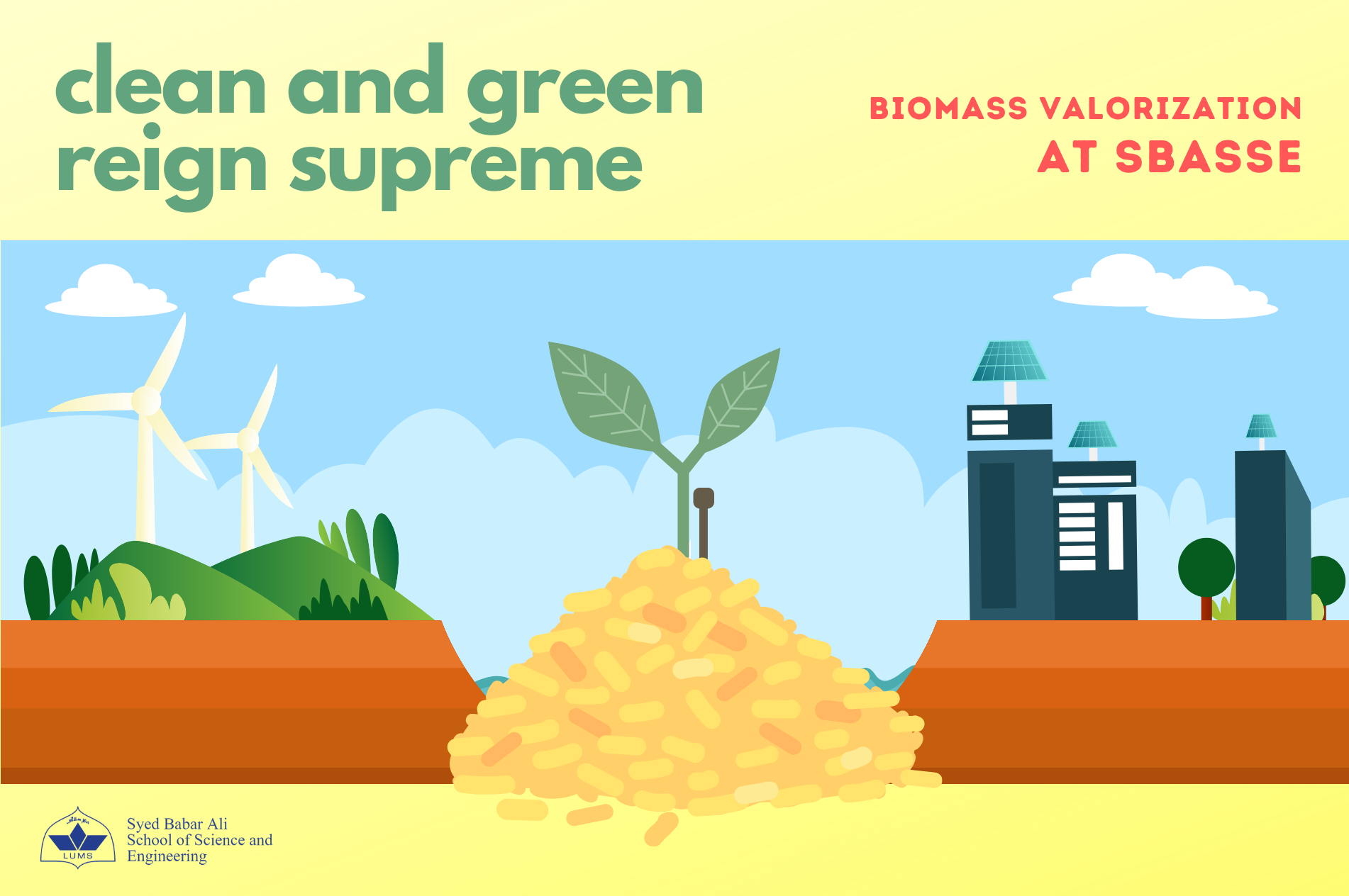
Clean and Green Reign Supreme: Biomass Valorization at LUMS
Green always wins. Biofuel does indeed offer a lot of value over its fossilized counterpart. Due to the renewable nature of biomass, such fuels are infinitely sustainable, unlike fossil fuels. Furthermore, the by-products of biofuels are generally safer, non-toxic, and non-polluting as well. Therefore, it is a genuine pleasure to announce the recent successes of the chemistry department in biomass conversion, led by Dr. Muhammad Zaheer from the Department of Chemistry and Chemical Engineering, at SBASSE.
Being at the forefront of biomass research does have its perks. The Department of Chemistry and Chemical Engineering received spades of funding from the HEC for two research projects focusing on converting biomass into fuels and chemicals. While it may appear like wizardry, we would argue it is even grander in its scale. Our esteemed researchers used crop residue and waste to produce valuable chemicals through catalysis. Utilizing waste in such an effective manner can be a real boon for our weary economy.
It does not end there either. Effective utilization of biomass opens realms of possibilities for their chemicals and by-products. For instance, the Department of Chemistry and Chemical Engineering has developed a novel catalyst that does not require any external oxidant to convert the lignin (organic substance usually found in wood) content of biomass into bio-oil. Thus, as a side product, this reaction produces pulp which can further be used for papermaking. Surely that is it, right? Nope. Biomass is the gift that keeps on giving. In collaboration with Dr. Ali Rauf, also from the Department of Chemistry and Chemical Engineering, the researchers at SBASSE have decided to utilize this pulp to produce bioethanol or even hydrogen, both excellent fuels for various processes.
In the right hands, biomass has turned out to be an absolute treasure-trove. There are always plans for future projects, scientists tinkering away and day night to unlock all the secrets of bio-mass valorization and unleash its untapped potential. Currently, they are working on a project to simultaneously convert crop residues and plastic waste into liquid fuels, which is under review for grants from HEC-CPEC and other sources. It seems nothing less than alchemy except it is environmentally friendly too.
The Department of Chemistry and Chemical Engineering is making great strides in biomass research. A team of the brightest minds in Pakistan is working together to achieve sustainable, pollution-free fuels and chemicals for Pakistan, adding much-needed economic value to our country. With partnerships at world-class institutions such as the DALIAN Institute of Chemical Physics; the sky's the limit.

